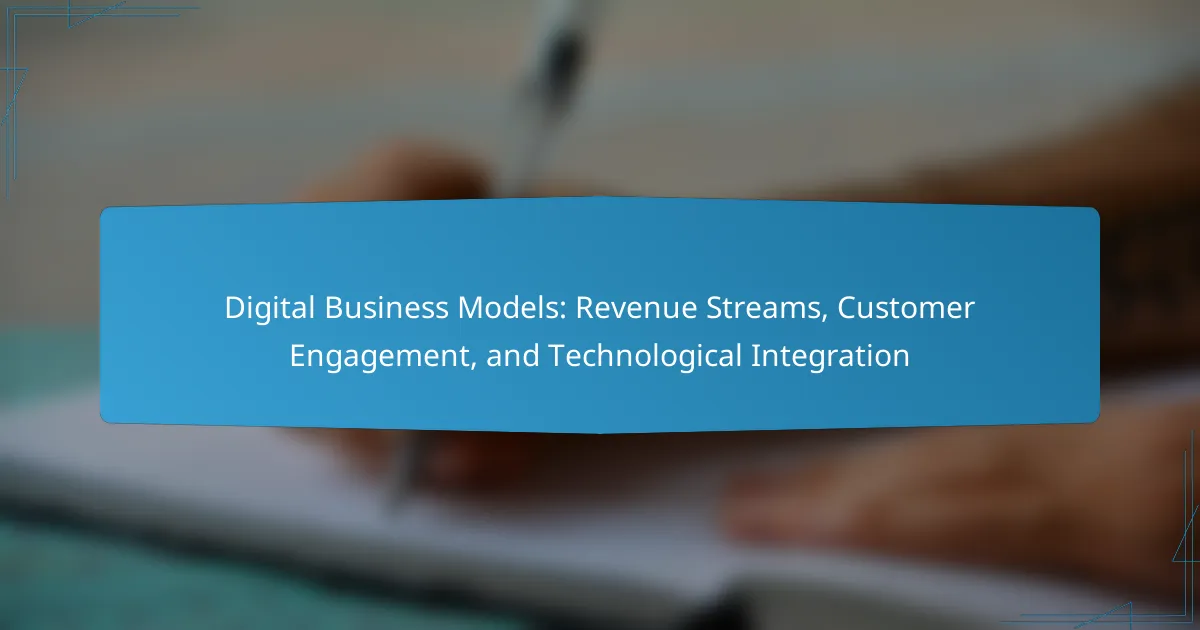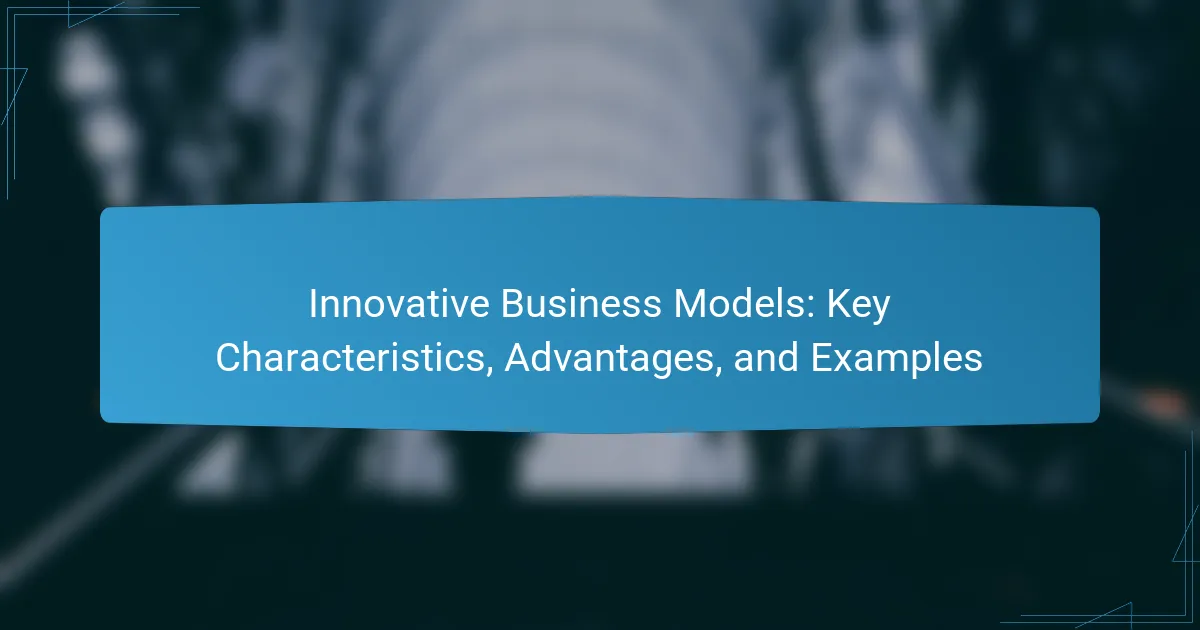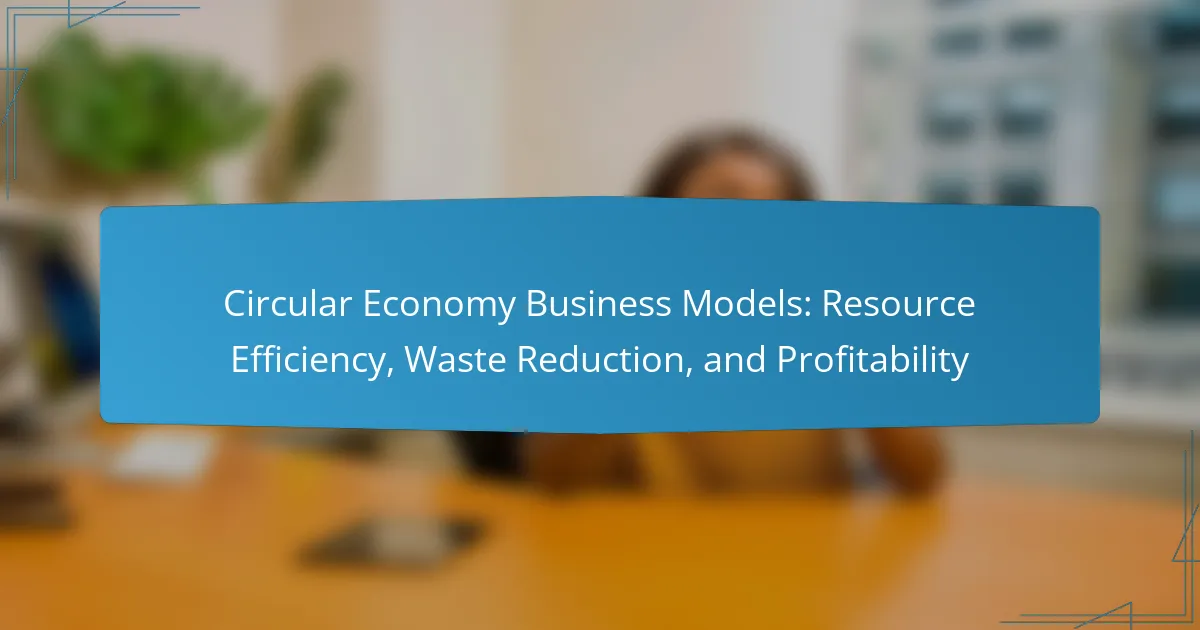Subscription-based business models are revenue structures where customers pay a recurring fee for access to products or services, applicable across various industries such as software, media, and consumer goods. This model promotes a steady income stream for businesses while providing customers with convenience and lower upfront costs. Key strategies for enhancing consumer retention in these […]

Digital Business Models: Revenue Streams, Customer Engagement, and Technological Integration
Digital business models are frameworks that enable companies to create, deliver, and capture value in a digital landscape. This article explores various aspects of digital business models, including revenue streams such as subscription fees, advertising revenue, transaction fees, and affiliate marketing. It emphasizes the importance of customer engagement through digital tools like social media and […]

Franchise Business Models: Operational Framework, Brand Consistency, and Growth Potential
Franchise business models enable individuals to operate businesses under established brands, with franchisors granting franchisees rights to trademarks and business methods in exchange for fees and royalties. These models promote brand consistency and operational efficiency through standardized processes and training, resulting in improved service quality and reduced costs. The franchise sector significantly contributes to the […]

Innovative Business Models: Key Characteristics, Advantages, and Examples
Innovative business models are unique frameworks that create, deliver, and capture value in new ways, often challenging traditional methods by integrating new technologies. Key examples include subscription services, platform-based models, and freemium offerings, which enhance customer engagement and generate additional revenue streams. Companies like Airbnb, Netflix, and Tesla exemplify the impact of these models, demonstrating […]

Circular Economy Business Models: Resource Efficiency, Waste Reduction, and Profitability
Circular Economy Business Models emphasize resource efficiency and waste reduction by creating closed-loop systems where products are reused, repaired, and recycled. These models contrast with traditional linear approaches that follow a ‘take-make-dispose’ pattern, leading to significant environmental benefits and cost savings. Effective waste reduction strategies are essential, as they minimize resource consumption, lower operational costs, […]

Freemium Business Models: User Acquisition Tactics, Conversion Rates, and Case Studies
Freemium business models provide basic services at no cost while charging for premium features, effectively lowering barriers to entry and fostering user engagement. This strategy aims to convert free users into paying customers over time, with companies like Spotify, Dropbox, and LinkedIn exemplifying successful implementations. Key tactics for user acquisition in these models include offering […]

Hybrid Business Models: Combining Traditional and Digital Strategies for Market Success
Hybrid business models are strategies that merge traditional and digital approaches to enhance value creation. These models utilize the strengths of both physical operations, such as retail stores, and online platforms, leading to increased customer engagement and broader market reach. Types of hybrid business models include the product-service model, freemium model, subscription model, and marketplace […]

Sustainable Business Models: Environmental Impact, Economic Benefits, and Implementation Strategies
Sustainable business models are frameworks that integrate environmental, social, and economic factors into business operations to create long-term value while minimizing negative impacts. These models emphasize resource efficiency, waste reduction, and ethical sourcing, leading to enhanced brand reputation and customer loyalty. Research shows that companies adopting sustainable practices can achieve cost savings and improved profitability, […]

Social Enterprise Business Models: Mission-Driven Approaches, Funding Sources, and Impact Measurement
Social enterprise business models integrate social missions with revenue-generating activities to address societal challenges while maintaining financial sustainability. These models include non-profit organizations with earned income strategies and for-profit companies focused on social purposes. Funding for social enterprises comes from diverse sources such as government grants, impact investments, crowdfunding, and corporate partnerships. Impact measurement in […]

Platform Business Models: Network Effects, Scalability, and Competitive Advantages
Platform business models are frameworks that enable exchanges between multiple user groups, connecting consumers and producers on shared platforms. Key characteristics of these models include network effects, where the value of the platform increases with user participation, and scalability, allowing rapid growth without a proportional rise in costs. Successful platforms, such as Amazon and Airbnb, […]
